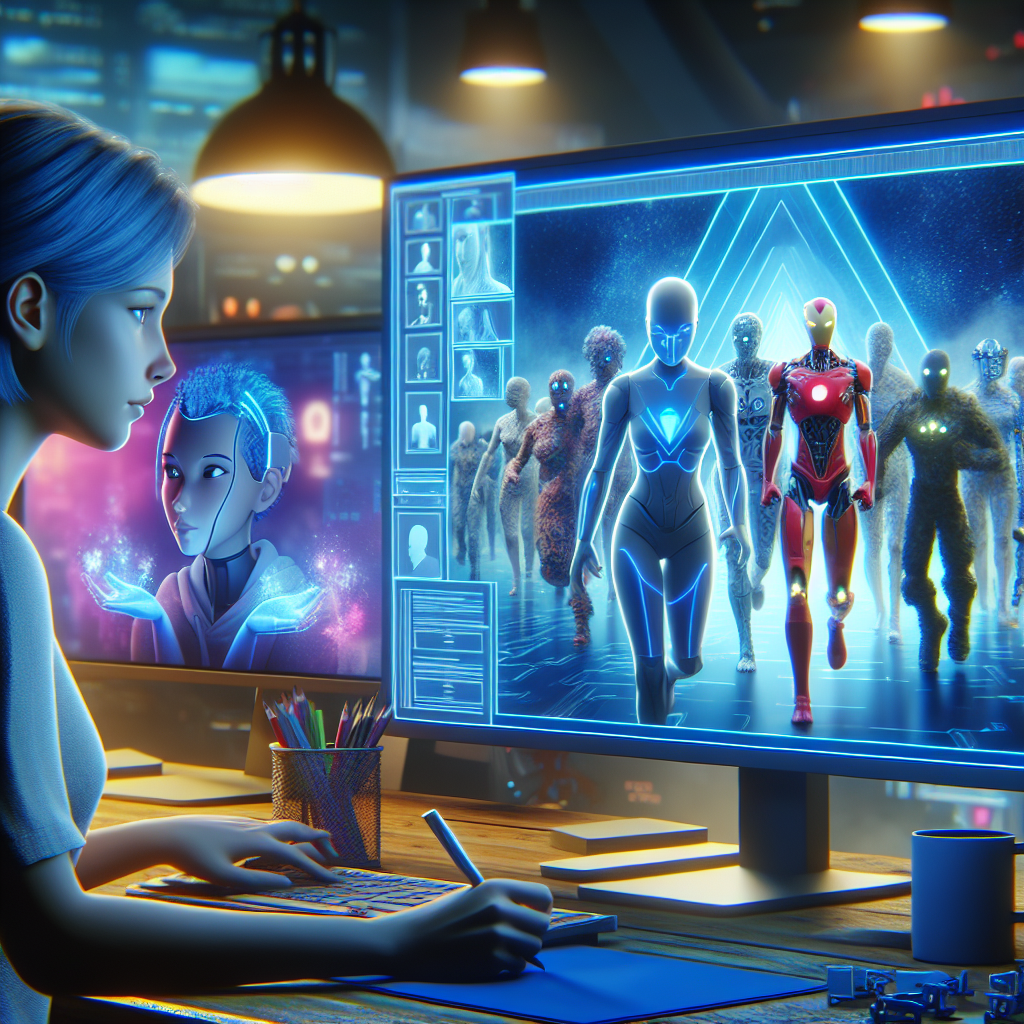AI Revolutionizing Game Development & NPCs
In 1980, players were introduced to the ghostly adversaries of Pac-Man—Blinky, Pinky, Inky, and Clyde. While they followed simple, pre-defined movement patterns, they were among the earliest examples of non-playable characters (NPCs) with distinct behavior. Fast forward to today, and AI-driven NPCs can exhibit near-human intelligence, adapting, learning, and responding dynamically to players. This transformation is no longer a futuristic fantasy—AI is revolutionizing game development and NPCs in ways never seen before.
How AI is Changing Game Development
Game development has traditionally been a labor-intensive process, requiring thousands of hours to create realistic environments, engaging storylines, and complex character interactions. AI is now streamlining many of these tasks, making development faster, more efficient, and more innovative.
Here are some of the key ways AI is transforming modern game development:
- Procedural Content Generation: AI-driven algorithms can create entire worlds, landscapes, and dungeons dynamically. Games like No Man’s Sky utilize procedural generation to offer players an endlessly explorable universe.
- Automated Testing: AI-powered bots can test games at a rapid pace, identifying glitches, addressing balancing issues, and ensuring smoother gameplay before a title is released.
- Advanced Animation and Graphics: Machine learning enhances character animations, allowing for fluid movements and more immersive experiences.
- Personalized Player Experiences: AI can adapt difficulty settings and in-game events based on an individual’s play style, ensuring a more tailored gaming experience.
AI and NPCs: From Scripted to Smart
Gone are the days when NPCs followed rigid dialogue trees and pre-set actions. Thanks to AI-powered tools, NPCs are now capable of learning, reacting, and even forming dynamic relationships with players.
Here’s how AI is transforming NPC interactions:
- Natural Language Processing (NLP): Games like The Elder Scrolls series have long featured conversation trees, but AI-powered NLP takes this further, allowing NPCs to understand and respond to player input dynamically.
- Behavioral Learning: NPCs can now adapt based on a player’s actions. An AI-powered enemy might learn from repeated combat strategies and develop counter-tactics in real time.
- Emotionally Intelligent NPCs: Some advanced AI models are enabling NPCs to react emotionally, making in-game relationships and dialogues feel more immersive. Imagine a companion character who remembers past interactions and behaves accordingly.
- Autonomous Decision-Making: AI ensures that NPCs don’t just follow basic scripts but instead make decisions based on real-time environmental awareness, enhancing the realism of open-world games.
The Future of AI in Gaming
With the continued advancement of AI, the line between human-driven and AI-driven gameplay is steadily blurring. In upcoming years, we can expect:
- Even more sophisticated NPCs with unique personalities and evolving relationships with players.
- Hyper-realistic world-building, where AI constantly modifies environments for endless exploration.
- Deeper story-driven experiences where player choices shape the game dynamically.
AI’s influence on gaming is not just about making development easier; it’s about pushing creative boundaries and redefining what’s possible in interactive storytelling. As AI evolves, the games of the future will be more immersive, intelligent, and unpredictable than ever before.
For more on AI’s impact on gaming, check out Wired’s AI section for the latest insights.

